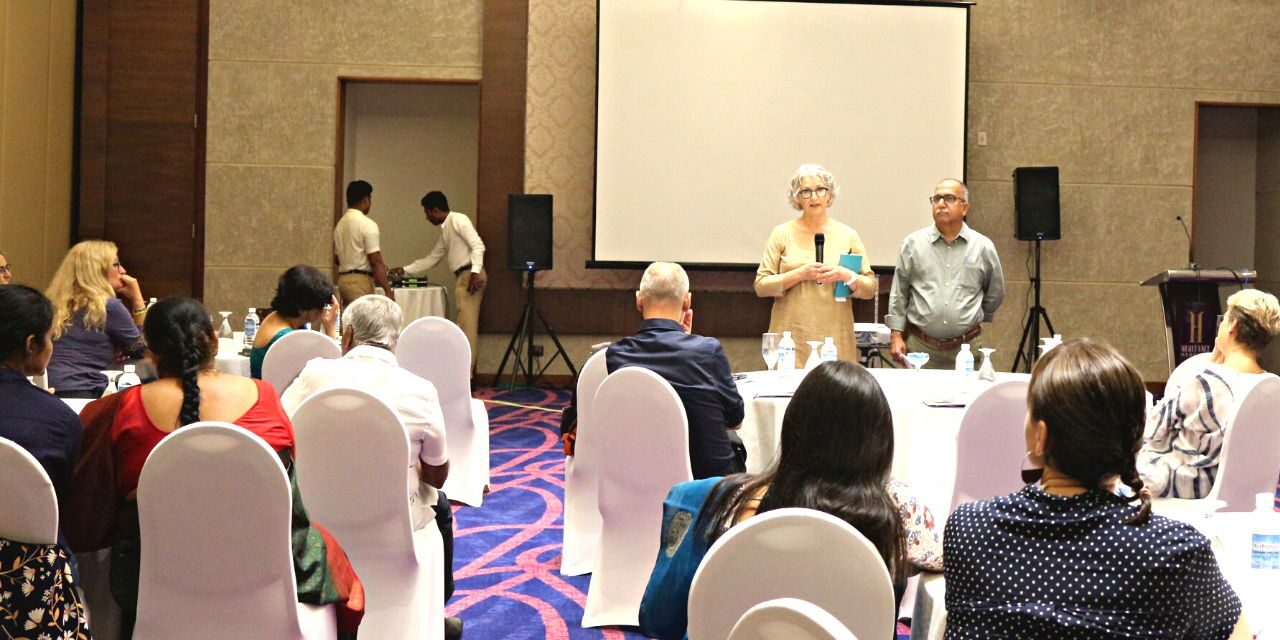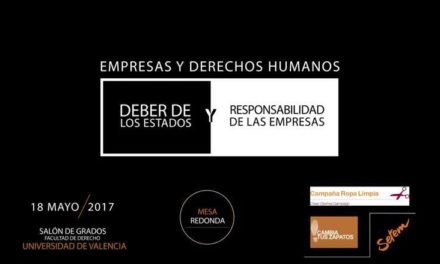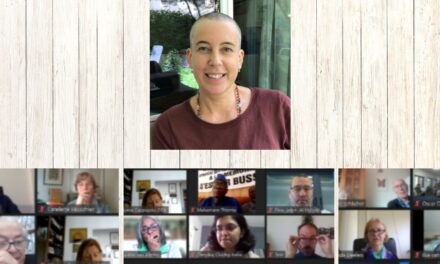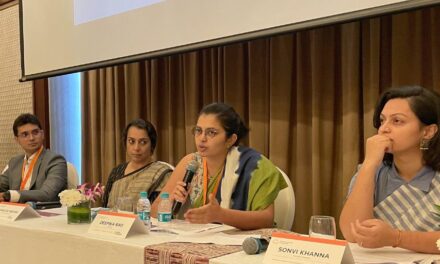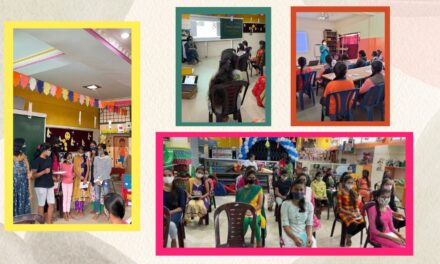This Cardiff University-Cividep Research, Details Bengaluru Garment Workers’ Experiences of Seeking Access To Remedy That Have Been Largely Hidden From Scrutiny
The Operationalising Labour Rights (OLR) Project was launched in 2018 between Wales Institute of Social and Economic Research and Data (WISERD), Cardiff Business School (Cardiff University, UK), and Cividep India. The aim of this collaborative research was to build a longitudinal database of information on the nature, process, and outcomes of workplace grievances as a means of assessing how far it is possible for workers to use dispute resolution mechanisms at the workplace and operationalise their labour rights in gaining access to remedy.
One of the simplest measures of whether a worker can gain access to remedy is what happens when they have a grievance. Who does a worker turn to, how is their concern addressed, who speaks for them and what chance do they have of gaining justice while they are still employed? The OLR project collected data on workplace grievances over a period of 24 months and analysed the ‘social life’ of grievances from the time they were raised to the time of their resolution or lack thereof. The research brings to light the seemingly intractable challenges that workers experience in accessing remedies and operationalising core labour standards as part of the principles of decent work established by the ILO and the UN Guiding Principles on Human Rights (UNGPs).
The ‘Protect, Respect, Remedy’ framework developed by John Ruggie demands first, of nation states that they protect their citizens and second, that corporations should respect human rights at work. The OLR research focuses on the last pillar of the Ruggie framework, which is ‘access to remedy.’
One of the human rights covered by the UNGPs is the right to freedom of association. The lack of existence of collective bargaining agreements in garment factories means that the human right to associate is not being operationalised. In real terms, what this means is that the third pillar of the UN guiding principles – access to remedy – is blocked. The OLR project provides a detailed analysis of how this happens and the ways in which workers are affected. This also explains why the title of the project is ‘Operationalising Labour Rights’.
In looking at everyday workplace grievances over a period of two years, the project uncovered the labyrinth of obstacles that workers encounter while seeking justice for labour rights violations. The focus was to assess how easily workers could access remedy, i.e, help and compensation when their fundamental workplace rights, such as fair pay, safe conditions, and freedom from discrimination, were compromised.
The project was funded by the ESRC Global Research Challenges Fund. The OLR team collected records of close to 600 workplace grievances faced by Bengaluru’s garment workers, using a tablet survey tool.
Even though civil society has been campaigning for better conditions in garment factories, without reliable enforcement mechanisms in place, rights can be ignored. In this context, the Project gathered data on workers’ problems in Bengaluru’s factories. This data has helped unravel the micro-politics of the workplace and individual experiences of seeking access to remedy, that have remained largely hidden from scrutiny.
The Project’s goal is to make workers’ problems more visible, providing evidence to support efforts to improve conditions and ensure that when workers’ rights are violated, they have a way to make things right. The main objectives were:
- To compile a longitudinal data bank of workplace grievances, as experienced by workers in the garment factories of Bengaluru as a basis for transparency and advocacy for more effective access to remedy.
- To monitor the progression of workplace grievances through grievance resolution mechanisms over time, from inception to final outcome, as a means of understanding power and process at the workplace.
- To develop skills and capacity at the grassroots in Bengaluru to systematically document grievances, common concerns, contraventions of core labour standards, and recurring practices and themes in factories.
- To contribute to theory and knowledge of labour’s place in global value chains and afford insight into the efficacy of social auditing and statutory regulation.
Findings include:
- Explicit and open employer hostility toward freedom of association
- Routine use of humiliation, isolation, and verbal & physical violence as methods of managerial control
- Deliberate disruption of the continuity of service to limit workers’ statutory entitlements and potential unionisation
- Manipulation of paperwork to deny workers their rights
- Factory closure as a means to deny entitlements, including wage theft
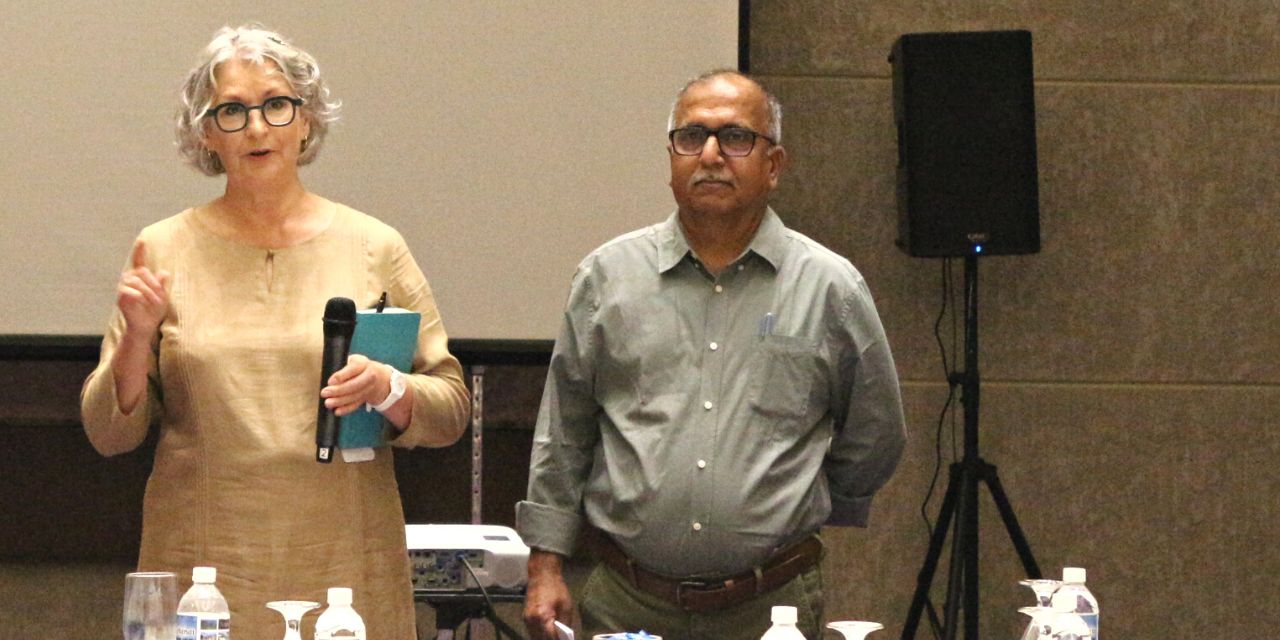 Jean Jenkins, Professor of Employment Relations at Cardiff Business School, and Gopinath Parakuni, Founder and Strategy Director – Cividep India, facilitate the introductory session of a two-day conference on Operationalising Labour Rights Project
Jean Jenkins, Professor of Employment Relations at Cardiff Business School, and Gopinath Parakuni, Founder and Strategy Director – Cividep India, facilitate the introductory session of a two-day conference on Operationalising Labour Rights Project
“By analysing the complaints raised by garment workers about their workplaces, we have uncovered a complex situation of exploitation and businesses taking advantage of workers’ vulnerability. The research has also shed light on workplace relationships and power dynamics,” said Jean Jenkins, Professor of Employment Relations at Cardiff Business School, at a recent conference where the preliminary findings were shared with prominent academics and representatives of civil society organisations and multi-stakeholder initiatives.
The findings of the research revealed several demographic disparities, with migrants and women relegated to lower-skilled roles in factories. The report notes that women earn less than men, and their earnings decrease with age unlike in the case of men. Only 52% of the respondent workers had received appointment letters from the factory, and for most workers, especially women with low education levels, understanding and retention of these letters present great difficulties. This poses a significant barrier to accessing rights and remedies.
Overtime is common, and “comp offs” (compensatory offs) are given in lieu of overtime wages to workers. With regard to grievances, intimidation, and torture are prominently reported by women. If they report these grievances, they are threatened with dismissals and punishment. The preliminary findings have been shared with the German Sustainable Textile Partnership. OLR research, which will be published soon, also contributed to the third phase of the UN OHCHR Access to Remedy Project (ARP III).
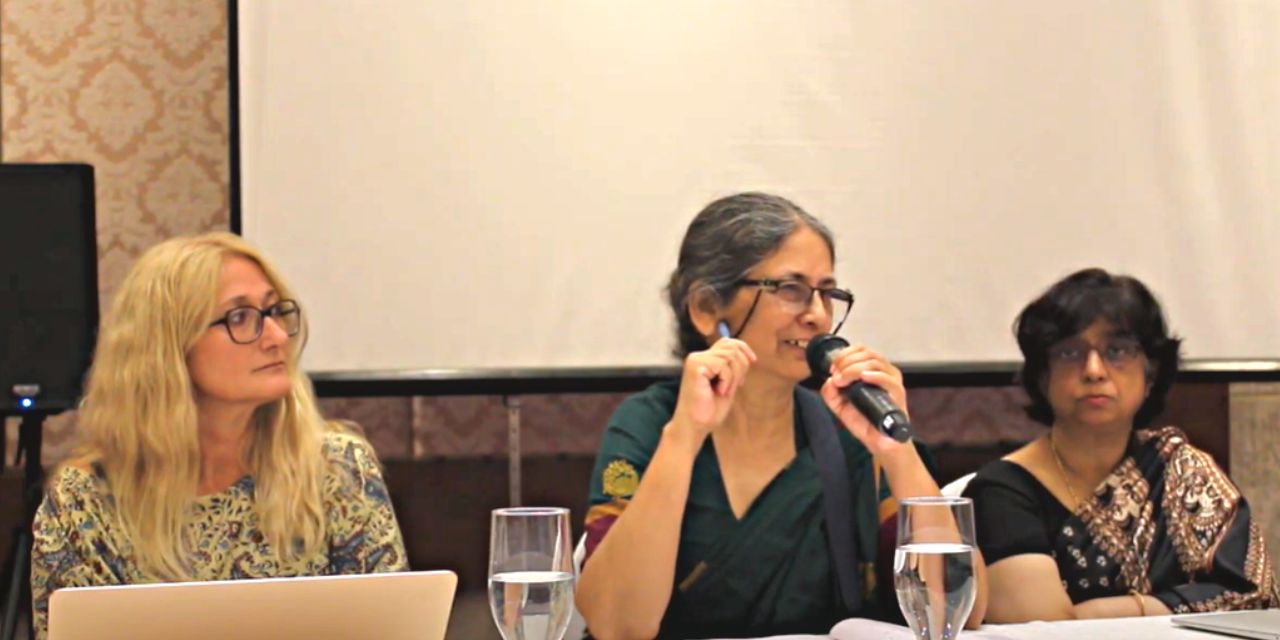 Scholar Dr. Indrani Mazumdar gives her feedback on the research findings at a panel discussion on ‘What’s The Value of Research?’. (From left): Dr. Aelssandra Mezzadri, Reader of Development Studies, School of Oriental and Asian Studies, London; and Dr. Supriya Roy Chowdhury, Professor, National Institute of Advanced Studies, India
Scholar Dr. Indrani Mazumdar gives her feedback on the research findings at a panel discussion on ‘What’s The Value of Research?’. (From left): Dr. Aelssandra Mezzadri, Reader of Development Studies, School of Oriental and Asian Studies, London; and Dr. Supriya Roy Chowdhury, Professor, National Institute of Advanced Studies, India
Dr. Supriya Roy Chowdhury, Professor at the National Institute of Advanced Studies, Bengaluru, India, said that the OLR research points to fundamental issues in the industry and state’s labour regulation at a session on ‘What’s The Value of Research?’. She said that the existence of the informal within the formal (in garment factories) is problematic and added that the spotlight should be on the state’s role in executing labour laws.
Author and scholar Dr. Indrani Mazumdar pointed to the importance of documentation of individual grievances and their course, once reported. “This research, involving transnational collaboration and new technologies, holds significant weight. The findings are paramount in illuminating the nature of power relations in the industry. We find that this is a common experience but is rarely documented in this manner.” The OLR team collected data by developing a survey-style case notes tool converted to tablet software (Lime Survey) and formulated categories of grievances. Dr. Mazumdar pointed out that the ‘direct compliance-based analysis’ in the OLR research is new in the garment industry.
Dr. Aelssandra Mezzadri, Reader of Development Studies at the School of Oriental and Asian Studies (SOAS), London, noted that the research report introduces a significant innovation in executing worker-centered research in practice. “The methodological innovation is commendable,” she said. Dr. Mezzadri added that the graph illustrating the inability of women workers to leverage their educational qualifications is striking. She pointed out how this and other findings contribute to the critique of certain theories and GVC (Global Value Chain) analysis on an international scale, challenging the assumption that skill acquisition is enough to bridge any gaps. She pointed to the existence of numerous skill development centres and how women end up as cheap labour through them.
The experts spoke about the value of worker-driven grassroots research. Dr. Mazumdar said research work like OLR has a new urgency as many of the earlier categorisations and modes of analysis are under criticism. “Research is needed to be able to understand this contemporary reality of power relations in which our workers are located,” she said. However, there are limitations when it comes to making effective use of the research by policymakers, said Dr. Supriya Roy Chowdhury.
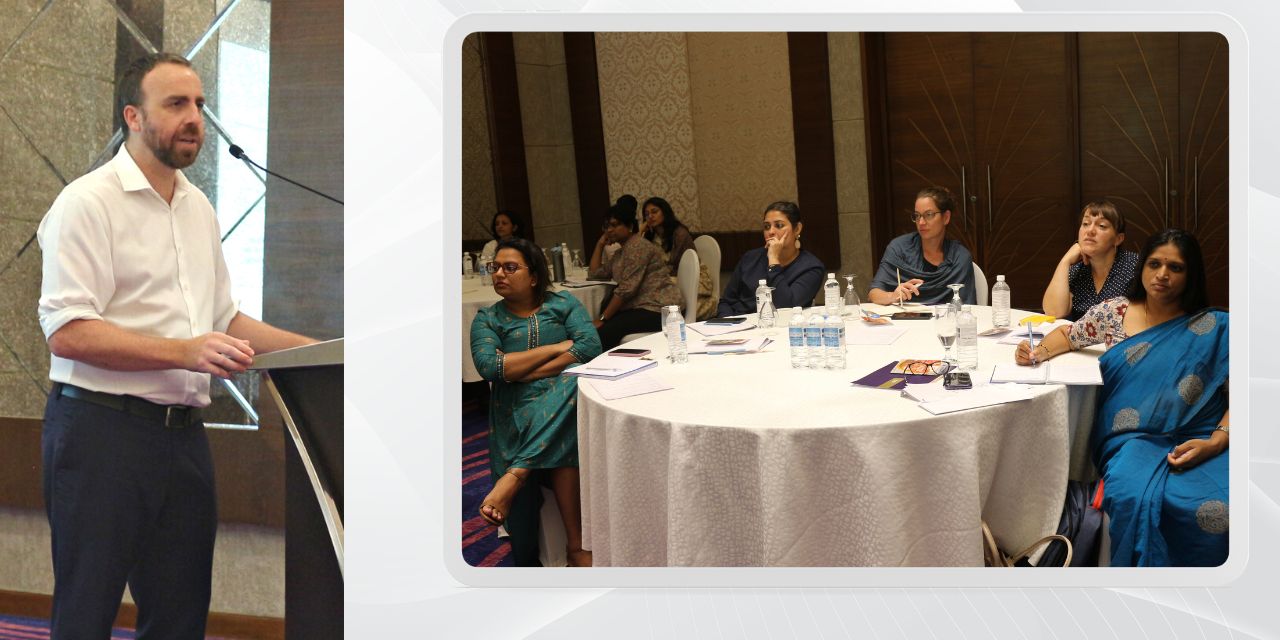 Ben Shea, Associate Human Rights Officer at United Nations High Commissioner for Human Rights (UNHCR) at the conference. Pic 2 (From left): Gayani Gomes (Project Manager-Women’s Center, Sri Lanka), Mosumi Sarangi (India Country Manager – Fair Wear Foundation), Anne van Lakervel (Living Wage Coordinator – Fair Wear Foundation), Anna Bryher (Policy Lead – Labour Behind the Label), and Madhu Sridharan (Free Trade Zone, Sri Lanka)
Ben Shea, Associate Human Rights Officer at United Nations High Commissioner for Human Rights (UNHCR) at the conference. Pic 2 (From left): Gayani Gomes (Project Manager-Women’s Center, Sri Lanka), Mosumi Sarangi (India Country Manager – Fair Wear Foundation), Anne van Lakervel (Living Wage Coordinator – Fair Wear Foundation), Anna Bryher (Policy Lead – Labour Behind the Label), and Madhu Sridharan (Free Trade Zone, Sri Lanka)
Ben Shea spoke about how the research has impacted the UNHCR’s Access to Remedy project. “OLR revealed how abuses affect women and men differently, emphasising the importance of addressing gender-based violence. Our guidance also stresses the need to consider gender perspectives in addressing sexual harassment.”
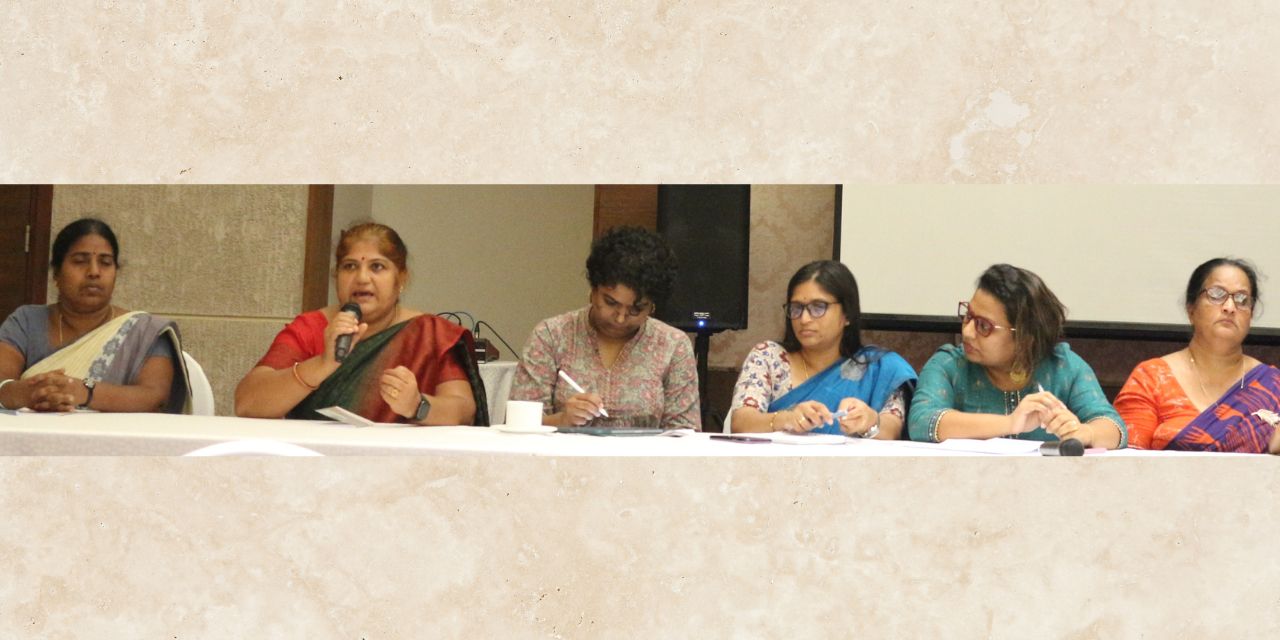 (From left): Saroja and Rukmini (Garment Labour Union, Bengaluru), Ganga Shekar (Executive Trustee -FEDINA, Bengaluru), Madhu Sridharan (Free Trade Zone, Sri Lanka), Gayani Gomes (Project Manager-Women’s Center, Sri Lanka), and Chamila Thushari (Programme Coordinator-Dabindu Collective, Sri Lanka) at a panel discussion on ‘The Challenges of Data Collection & Insights From Grassroots Organisations’.
(From left): Saroja and Rukmini (Garment Labour Union, Bengaluru), Ganga Shekar (Executive Trustee -FEDINA, Bengaluru), Madhu Sridharan (Free Trade Zone, Sri Lanka), Gayani Gomes (Project Manager-Women’s Center, Sri Lanka), and Chamila Thushari (Programme Coordinator-Dabindu Collective, Sri Lanka) at a panel discussion on ‘The Challenges of Data Collection & Insights From Grassroots Organisations’.
Representatives of garment worker unions and grassroots worker organisations based in India and Sri Lanka talked about how their views about data collection have changed. “We’ve realised how crucial it is to record workers’ complaints in an organised way. Workers have also recognised this importance, and it has transformed our work process,” said Rukmini, president of the Garment Labour Union (GLU), Bengaluru. GLU is the grassroots partner organisation for the OLR project and helped bring together the researchers and workers.
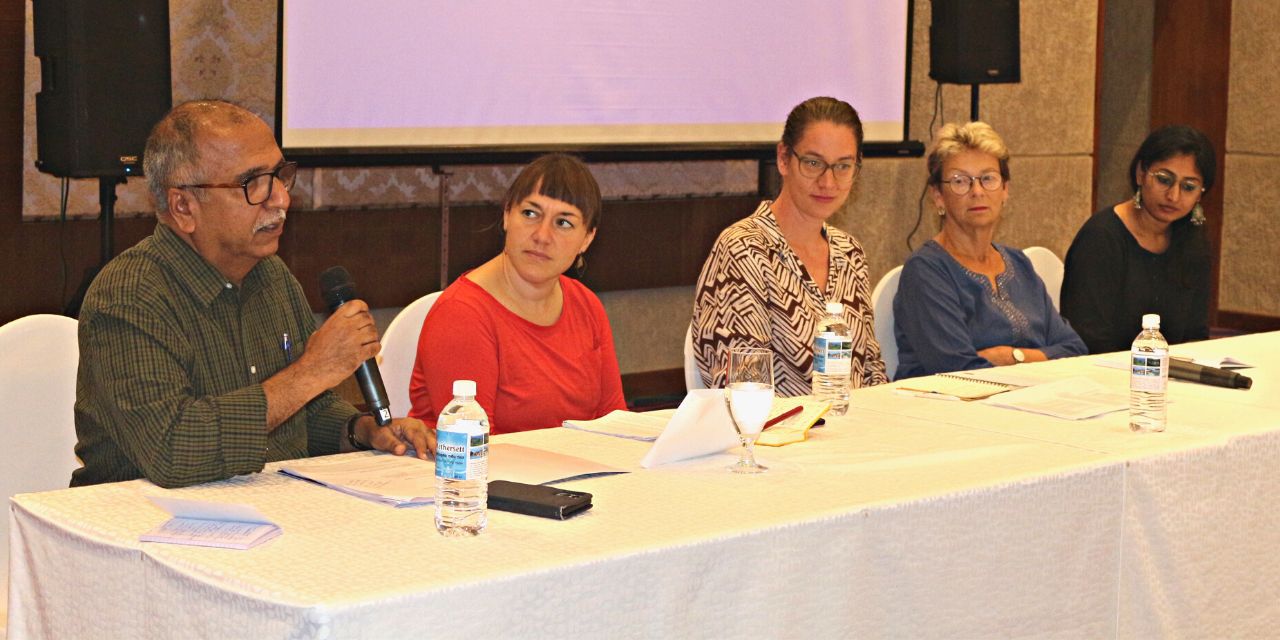 (From left): Gopinath Parakuni; Anna Bryher (Policy Lead – Labour Behind the Label); Anne van Lakervel (Living Wage Coordinator – Fair Wear Foundation); Gisela Burckhardt (Board Chairperson – FEMNET); and Komala Rangaswamy (India Programmes Manager- Ethical Trading Initiative), at a panel discussion on ‘Research In Practice’.
(From left): Gopinath Parakuni; Anna Bryher (Policy Lead – Labour Behind the Label); Anne van Lakervel (Living Wage Coordinator – Fair Wear Foundation); Gisela Burckhardt (Board Chairperson – FEMNET); and Komala Rangaswamy (India Programmes Manager- Ethical Trading Initiative), at a panel discussion on ‘Research In Practice’.
Representatives from non-profit organisations and multi-stakeholder initiatives spoke of how the OLR research will aid their work. “One only gets these kinds of insights from granularly going into the details (of workplace grievances). It can really help brands change the way they work with the (supplier) factories. It will also make it difficult for factories to pretend everything is fine,” said Anne van Lakerveld, Living Wage Coordinator, Fair Wear Foundation. She also said how these specific results can be amplified through collaboration, in order to get to the industry at large, including brands and their regulators. Ultimately it should contribute to the way brands report on how they have addressed some of their regulatory requirements.
Anna Bryer, Policy Lead at Labour Behind the Label, a UK-based non-profit cooperative institution, pointed out how OLR research could help. “LABL’s campaign aims to bring out the human element to help connect people across supply chains and themes, inspire solidarity and action, and urge brands to listen to consumers. To achieve this, we require compelling narratives, videos, and images that bridge the gap between people and the workers’ struggles, and this is where I see further opportunities,” said Anna.
The two-day event concluded with a roundtable discussion that enabled the participants to share feedback and learnings. Saroja of GLU said the research has helped strengthen her organisation’s work. “We are happy to have adopted a systematic and in-depth form of documenting grievances. We realised the difference between the grievance reported and the grievance that triggered it. We need to continue this work as it will help us in negotiating with the brands.”
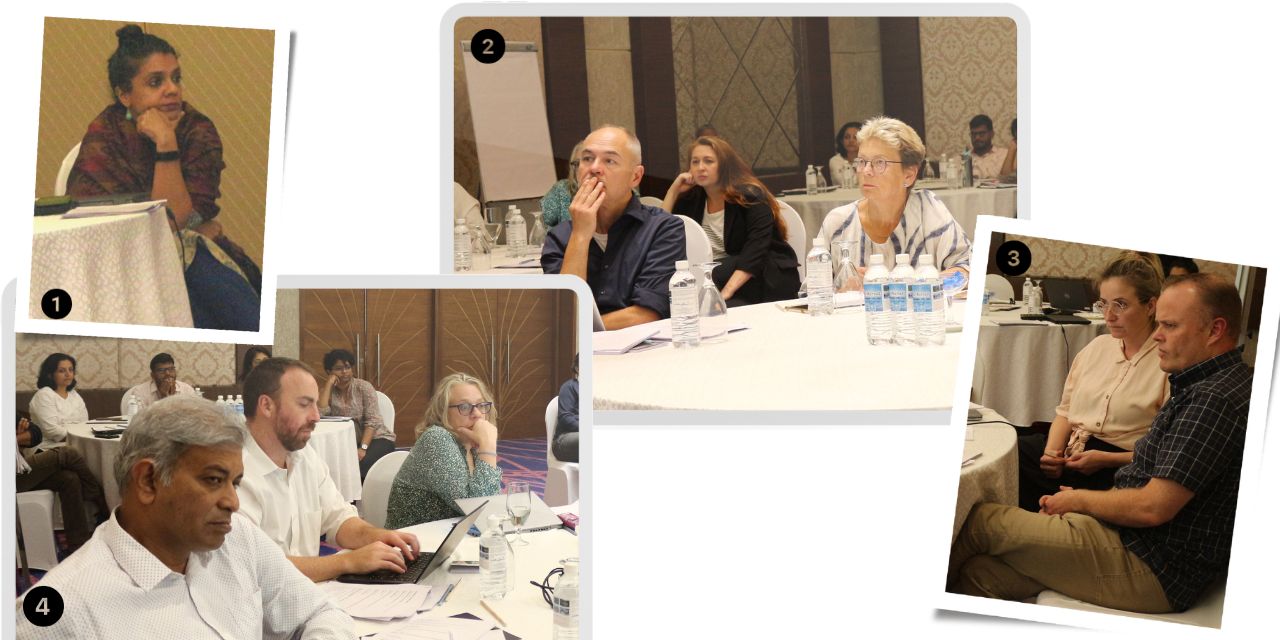 Pic 1: Rekha Chakravarthi, (Director – Business and Human Rights, Cividep India); Pic 2: Nick Hammer (Lecturer in Employment Studies-University of Leicester); Natalie Swan (Labour Rights Programme Manager- Business and Human Rights Resource Center); Gisela Burckhardt (Board Chairperson – FEMNET) Pic 3: Dr. Helen Blakely (Research Associate – WISERD), Rhys Davies (Co-Director & Senior Research Fellow-WISERD) Pic 4: Dr. Ernesto Noronha (Professor of Organisational Behaviour, Indian Institute of Management Ahmedabad), Ben Shea (Associate Human Rights Officer, UNHCR), and Dominique Mulle (Policy Director – Labour Behind the Label)
Pic 1: Rekha Chakravarthi, (Director – Business and Human Rights, Cividep India); Pic 2: Nick Hammer (Lecturer in Employment Studies-University of Leicester); Natalie Swan (Labour Rights Programme Manager- Business and Human Rights Resource Center); Gisela Burckhardt (Board Chairperson – FEMNET) Pic 3: Dr. Helen Blakely (Research Associate – WISERD), Rhys Davies (Co-Director & Senior Research Fellow-WISERD) Pic 4: Dr. Ernesto Noronha (Professor of Organisational Behaviour, Indian Institute of Management Ahmedabad), Ben Shea (Associate Human Rights Officer, UNHCR), and Dominique Mulle (Policy Director – Labour Behind the Label)

